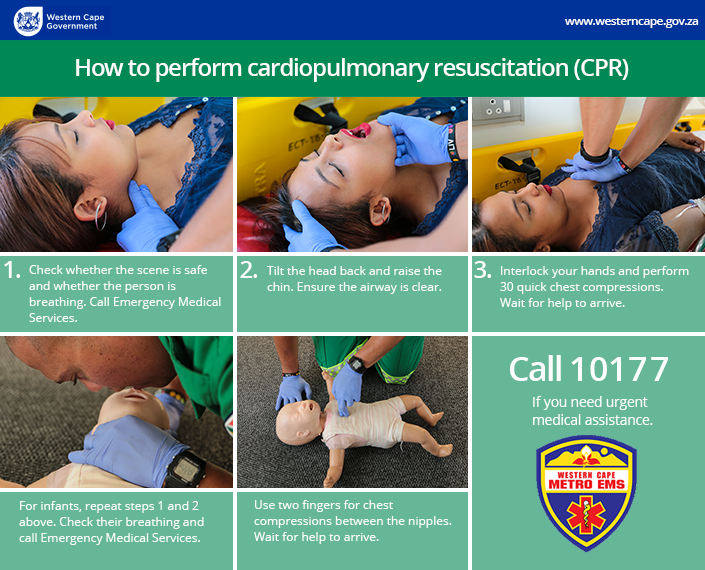Cardiopulmonary resuscitation (CPR)
Knowing what to do in an emergency can help to save a life. With nearly 225 South Africans killed by heart disease every day and with an alarming increase in fatal drowning, it's important to know cardiopulmonary resuscitation (CPR) a common and often lifesaving procedure.
Heart disease and strokes are the leading cause of death and disability in South Africa. According to the Heart and Stroke Foundation of South Africa, 80% of heart diseases and strokes can be prevented. The Medical Research Council also lists drowning as one of the highest causes of accidental deaths in children under the age of five.
What is cardiopulmonary resuscitation (CPR)?
CPR is an emergency lifesaving procedure that's performed when the heart stops beating. This is done until the circulation of blood and breathing in a person experiencing cardiac arrest can be restored. This lifesaving technique is very useful in many emergencies. including heart attacks or near-drownings where someone's breathing or heartbeat has stopped.
How to perform CPR
The following is an advisory illustration of CPR. Training by an accredited practitioner is advised.
You should take the following steps if you’re in a situation that requires CPR:
- Check if the person is conscious or unconscious.
- If the person seems to be unconscious, tap or shake his or her shoulder and ask loudly, ”Are you okay”.
- If the person doesn't respond and 2 people are available, 1 should call an ambulance.
- If you're alone and have immediate access to a telephone, call the ambulance yourself before beginning CPR.
- If you think the person has become unresponsive because of suffocation (such as from drowning), begin CPR for 1 minute and then call an ambulance.

Drowning in children
Statistics indicate that drowning remains one of the top causes of unnatural childhood deaths in South Africa. Knowing the tips to prevent drowning in children can change the statistics.
Initiatives around CPR
The Resuscitation Council of South Africa offers courses in CPR to anyone in communities, family members, relatives and friends of those who are most vulnerable such as older people and children. This course is good for people who have no medical knowledge, who want to learn life-saving skills.
Accreditations
If you're interested in doing a course in CPR, enrol at one of the following accredited institutions:
Ambulance services: 10177


